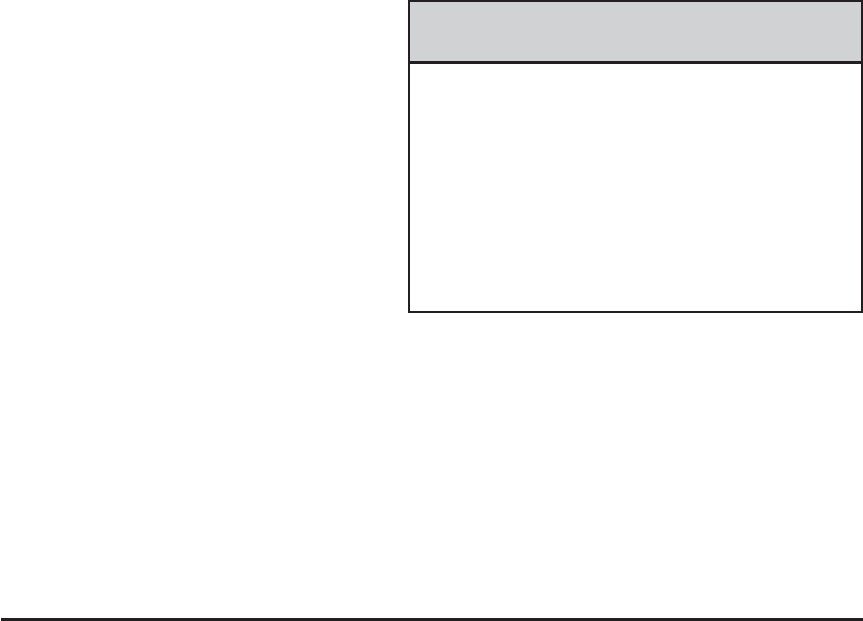
Q: What are the different types of add-on child
restraints?
A: Add-on child restraints, which are purchased by the
vehicle’s owner, are available in four basic types.
Selection of a particular restraint should take into
consideration not only the child’s weight, height,
and age but also whether or not the restraint will
be compatible with the motor vehicle in which it
will be used.
For most basic types of child restraints, there are
many different models available. When purchasing
a child restraint, be sure it is designed to be
used in a motor vehicle. If it is, the restraint will
have a label saying that it meets federal motor
vehicle safety standards.
The restraint manufacturer’s instructions that come
with the restraint state the weight and height
limitations for a particular child restraint. In addition,
there are many kinds of restraints available for
children with special needs.
{ CAUTION:
To reduce the risk of neck and head injury during a
crash, infants need complete support. This is
because an infant’s neck is not fully developed and
its head weighs so much compared with the rest of
its body. In a crash, an infant in a rear-facing child
restraint settles into the restraint, so the crash
forces can be distributed across the strongest part
of an infant’s body, the back and shoulders. Infants
should always be secured in rear-facing child
restraints.
1-38


















